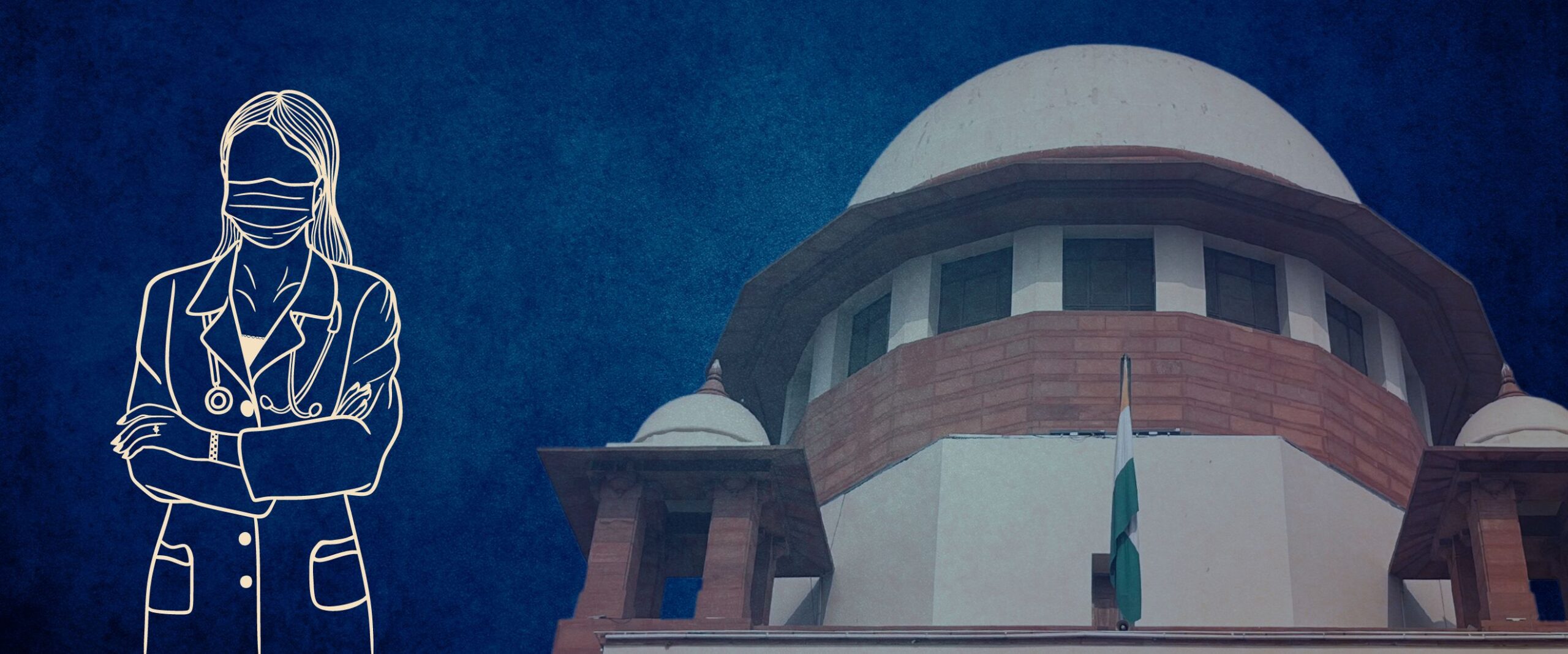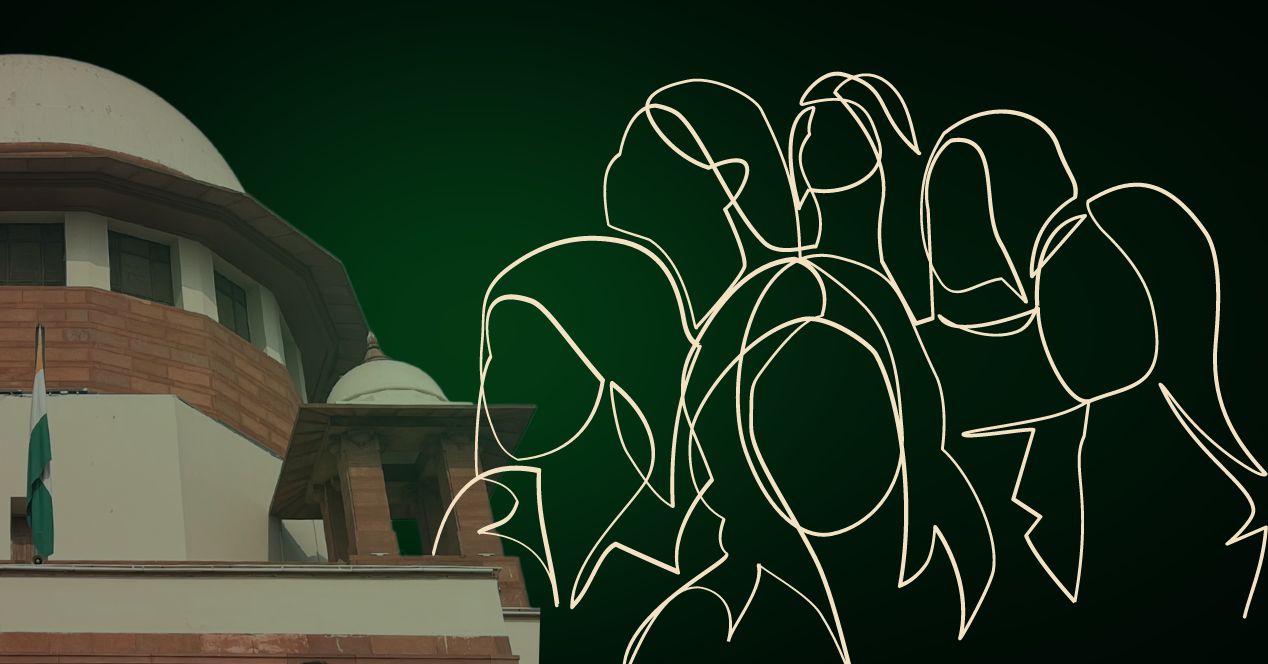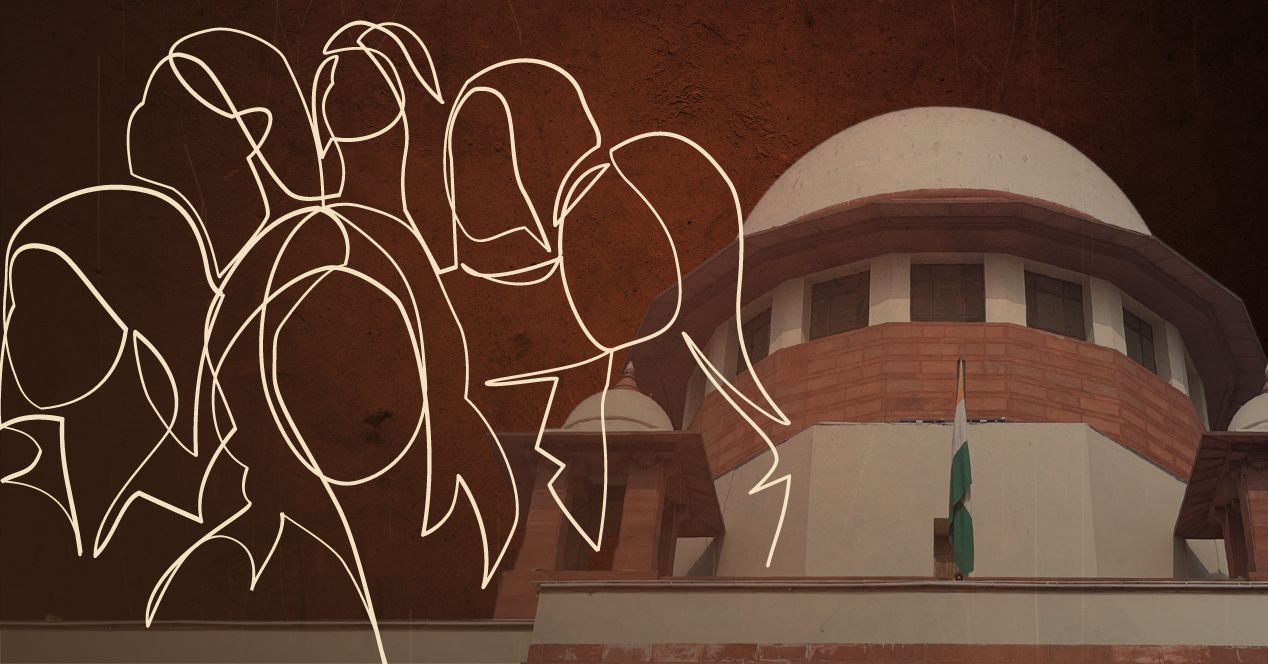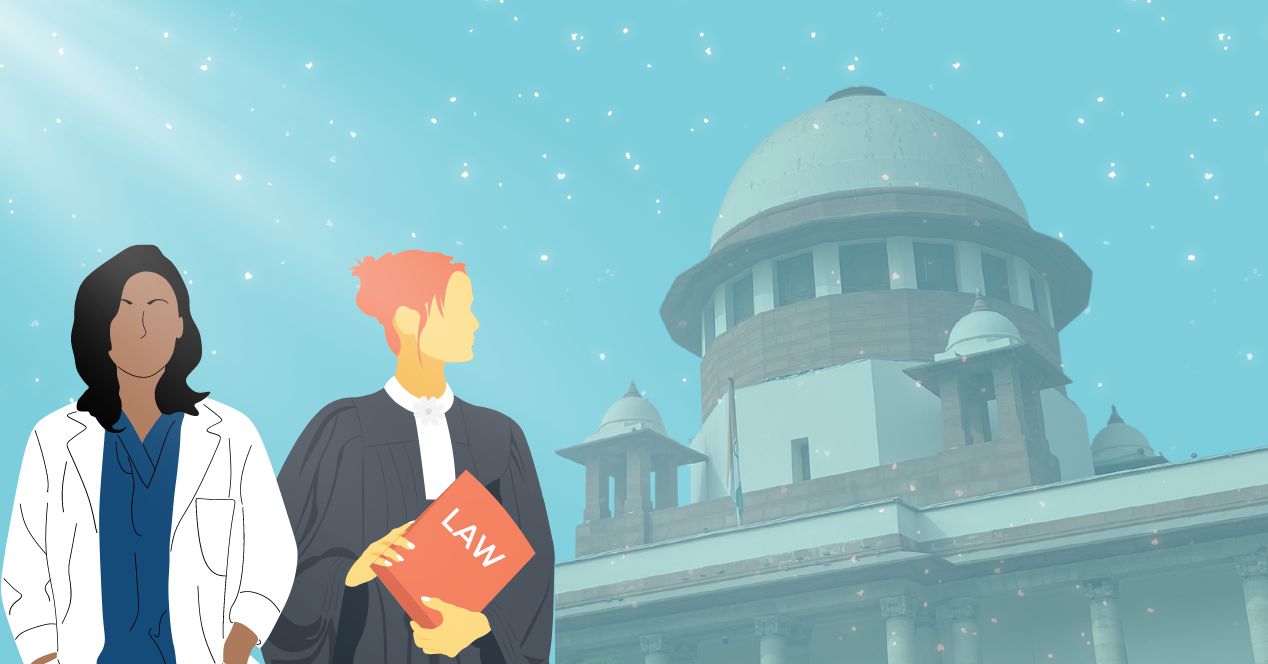Analysis
Kolkata rape and murder case | “Protest will not be at the cost of their duty,” Supreme Court directs doctors to return to work
The Court has also directed the CBI to file a fresh status report by 17 September clarifying the discrepancies pointed out by the Court

In Re: Alleged rape and murder incident of a trainee doctor in R.G. Kar Medical College and Hospital, Kolkata and related issues | Day 3
Today, a Division Bench of Chief Justice D.Y. Chandrachud and Justices Manoj Misra and J.B. Pardiwala continued hearing a suo moto case on the sexual assault and murder of a trainee doctor at R.G. Kar Medical College, Kolkata. The case also concerns surrounding issues pertaining to the safety of medical professionals.
The heinous crime, which occurred on 9 August 2024, has led to widespread protests across the country on women’s and doctor’s safety. On 13 August 2024, the Calcutta High Court had transferred the investigation to the Central Bureau of Investigation. On 18 August 2024, the Supreme Court took suo moto cognisance of the case.
In the hearings so far, the Court has been seeking regular status reports from the CBI on the investigation on the rape and murder. In the last hearing, it had directed the CBI to submit their next status report by 5 September 2024.
Today, the Court received the status report submitted in sealed cover by the Union. The counsel and the Bench carefully discussed the details of the investigation so as to not leak sensitive and confidential information in the public broadcast of the hearing. The files were passed around and read in silence.
The Court took note of doctors’ apprehension in returning to work due to safety concerns. Today, the Bench noted that while no punitive action would be taken against the doctors generally, the Court would not interfere with disciplinary actions taken against them if they refused to return to work despite safety facilities in place.
CBI’s fresh status report to be submitted by Tuesday, 17 August 2024
As the CBI’s report was submitted in a sealed cover, nearly all details were conveyed through tight-lipped exchanges between the counsels and the bench who were privy to the information. The Chief sought specific clarifications from the CBI and the West Bengal government, without giving away much about why they needed this information: What is the distance between the residence of the principal of RG Kar Medical College and the RG Kar Medical college? What is the time at which the Unnatural Death report came into existence?
Some of these questions were, clearly, in continuance of the Court’s discussions in the last hearing where there had been confusion about the time of entry of registration of the UDI report.
Senior Advocate Kapil Sibal, appearing for West Bengal, informed the Court that the entry of the UDI report was done at the Tala police station at 2:55 PM in the afternoon on 9 August 2024, shortly after the death certificate was issued at 1:47 PM. He further stated that the General Diary (GD) entry for the UDI was done at 2:55 PM as well. Solicitor General Tushar Mehta, retorted that the GD entry was made at 11:39 PM, much later. Sibal, though, had brought a certified copy to prove to the Court that his version was true. Sibal further explained that the judicial magistrate arrived at 4:10 PM, and the inquest was conducted between 4:20 and 4:40 PM in the afternoon. Finally, search and seizure was carried out from 8:30 PM to 10:45 PM in the evening.
There were other details that emerged in the course of the hearing. When a counsel brought up that there was still no clarity on the precise time of death, despite a month having passed since the incident, the Chief Justice revealed that from the status report there is some clarity on the timing of the death, and of some “movements” near the room where the victim was the previous night.
It seemed, however, that the status report had also highlighted discrepancies on which more investigation was needed. One such fault that the Solicitor General pointed out concerned details in the report of the Central Forensic Science Laboratory, Kolkata which did not match contrary evidence on the ‘semi-nude’ condition in which the victim had been found.
“There is a lot of what has been collected in the course of the last ten days that is subject to further verification,” the Chief noted, before directing the CBI to file a fresh status report by Tuesday, 17 August 2024.
Directions for accommodation and facilities for CISF personnel
On 20 August, 2024, the Supreme Court deployed personnel of the Central Industrial Security Force (CISF) to secure the premises of the RG Kar Medical College and Hospital.
Today, Mehta pointed out that accommodation was not being adequately provided to the CISF personnel consisting of women officers across three CISF companies. As a result, CISF officers were having to travel from the CISF Cantonment which was two and a half hours away from the RG Kar hospital. Sibal informed the Court that while housing for two CISF companies has not yet been provided, one company of CISF officers are about to receive accommodation across three sites:
1. 20 CISF personnel will be given space in some RMO quarters within the hospital premises
2. 40 CISF personnel will be staying at KMCP Day School, 2.6 kilometres away from the hospital,
3. 30 other CISF personnel will be staying at the Indira Matri Shishu Kalyan Hospital, 1.7 kilometres away.
Sibal informed that the latter two spaces had been under construction till now. CJI Chandrachud directed that the premises should be handed over by this evening (9 September 2024).
Mehta had also mentioned that facilities asked by the CISF, such as metal detector doors, were not being provided. While Sibal challenged this claim, stating that funds had been allocated and facilities were being provided, the Chief gave directions to ensure that the CISF faces no “logistical difficulties.” He directed that a senior officer of the state’s Home Department be nominated by the State of West Bengal, and a senior officer of the CISF on the spot must jointly ensure that all the three CISF companies are given accommodation in the vicinity. The Chief also directed the two officers to ensure that vehicular arrangements (six buses, four trucks and three light motor vehicles) are finalised within 5 PM today, and necessary gadgets for security purposes are provided latest by 9 PM today.
Discrepancies surrounding the post mortem
Counsel for petitioners raised various problems in the post mortem procedure conducted on the day of incident. One counsel argued that if the post mortem is carried out after 6:30 PM, which happened in this case, the civil surgeon must note in the post mortem report that the Deputy Commissioner of Police or the Commissioner of Police had certified it. This was not followed, even though there was a professor of forensics among the three post mortem doctors who must have known of the correct procedure. “The reason was to get rid of the body,” the counsel alleged.
Petitioners also noted that in the videograph of the postmortem, information regarding who conducted it, their designation, or where they came from was absent. The discussion soon became heated as the petitioner counsel alleged that the chief judicial magistrate present on scene, the three doctors doing the post mortem and five female doctors present were all part of a “North Bengal lobby.” “Don’t discuss such things!,” Mehta, who argued for the same side, said and reprimanded the counsel to fall in order.
One significant discrepancy the Court found was the mystery of a missing challan, a letter despatch that is to be filled by the constable and sent to the post-mortem doctor. This filled letter mentions details such as the clothes of the victim and names of relatives accompanying the body. Mehta explained that in the file given to the CBI by the West Bengal government, there was no mention of this challan. Mehta stated that the Chief Judicial Magistrate had himself arrived at the location of the post mortem and filled it up—there had been no separate form. Justice Pardiwala was concerned about the missing papers: “If we find out tomorrow that this document is missing, then something is wrong.”
The Court has directed West Bengal to submit an affidavit of the formal letter despatch before Tuesday, 17 September 2024.
Court: Protesting doctors cannot forget their duty towards patients
On 20 August 2024, while directing the formation of the National Task Force, the Court had asked West Bengal to ‘immediately’ put into place necessary measures for security of medical officers while the recommendation of the NTF was pending finalisation. Sibal explained that West Bengal had already filed a status report which showed that adequate measures for doctors, nurses and paramedical staff had been provided. Details of this status report were not revealed.
A troubling development brought before the Court by Sibal was that nearly 25,000 doctors were refusing to return to work, despite the Court’s earlier direction instructing all doctors to resume their duties. Sibal explained that doctors across the state were conducting protests in places and at times per their own will without seeking permission from the police.
“The healthcare system is facing severe disruptions,” Sibal submitted, informing that twenty-three people had died due to lack of treatment. He explained that access to specialty and super specialty doctors in cardiology, oncology and neurology by poor patients had become restricted.
But Senior Advocate Karuna Nundy, and another counsel representing a group of junior doctors countered that doctors were facing safety threats. Many doctors who were actively protesting or setting up encampments were receiving threats. Further, Nundy submitted that despite the CISF’s presence, civil servants and touts were entering the hospital premises and emergency ward to which only doctors should have access.
The Chief gave some pointed directions to ensure doctors’ safety.
1. He noted that district collectors and superintendents of police must “take stock of the situation” and ensure that necessary conditions have been created for ensuring the safety and security of all doctors in the government medical colleges and public hospitals.
2. Separate duty rooms and toilet facilities must be provided for men and women personnel.
3. An adequate number of CCTV cameras must be installed.
The Court acknowledged that while funds had been sanctioned by West Bengal for additional CCTVs and other infrastructural developments, continuous monitoring by district collectors and police superintendents was needed.
The Court directed that all doctors must return to work by 5 PM tomorrow, to avoid disciplinary action. The Court further directed that any complaint received on lack of safety or security would be “promptly attended to” by the police superintendent and suitable arrangement would be made at the police station. If, despite these facilities, the doctors abstain from attending, there will be “likelihood of adverse action” against them.
“The resident doctors must be aware they cannot be oblivious to the needs of the general community whom they are intended to serve and to reciprocate by returning back to work within this period,” the Chief remarked.
The case will be next heard on Tuesday, 17 September 2024




